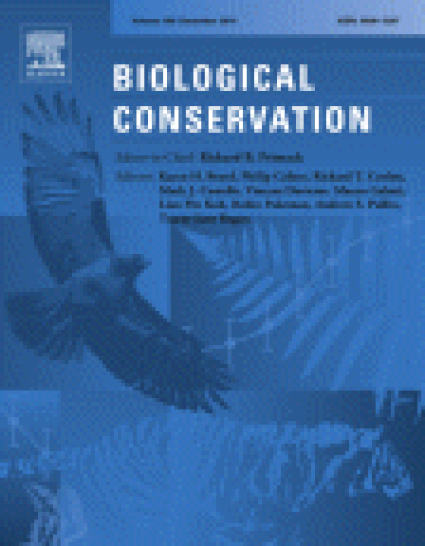
Article
Social–ecological systems approach to non-native species: Habituation and its effect on management of coqui frogs in Hawaii
Biological Conservation
(2014)
Abstract
Non-native species introductions have the ability to affect both ecological and social systems, thus to address those outcomes both ecological and social influences on an invasion need to be understood. We use a social–ecological systems approach to investigate connections between human and ecological factors that affect efforts to control the non-native coqui frog (Eleutherodactylus coqui) on the island of Hawaii. The coqui frog is recognized as a ‘pest’ and ‘injurious wildlife’ by the Hawaii Department of Agriculture. Because the coqui occurs on many small private properties across the island, it is necessary to enlist private citizens in control efforts. Control efforts can include direct chemical control of the coqui as well as landscape manipulations that reduce habitat quality for the frog. On 85 private properties in 12 communities across the island, we measured the relationship between coqui abundance, residents’ attitudes toward the coqui, their reported participation in control activities, and environmental variables that affect habitat quality for the frog. Residents’ attitudes correlated with coqui frog abundance, but in an unexpected direction:...
Disciplines
Publication Date
2014
DOI
https://doi.org/10.1016/j.biocon.2014.09.044
Citation Information
Mark W. Brunson. "Social–ecological systems approach to non-native species: Habituation and its effect on management of coqui frogs in Hawaii" Biological Conservation Vol. 180 (2014) p. 187 - 195 Available at: http://works.bepress.com/mark_brunson/126/
